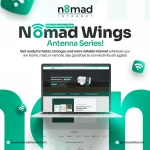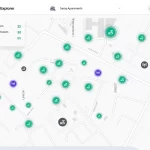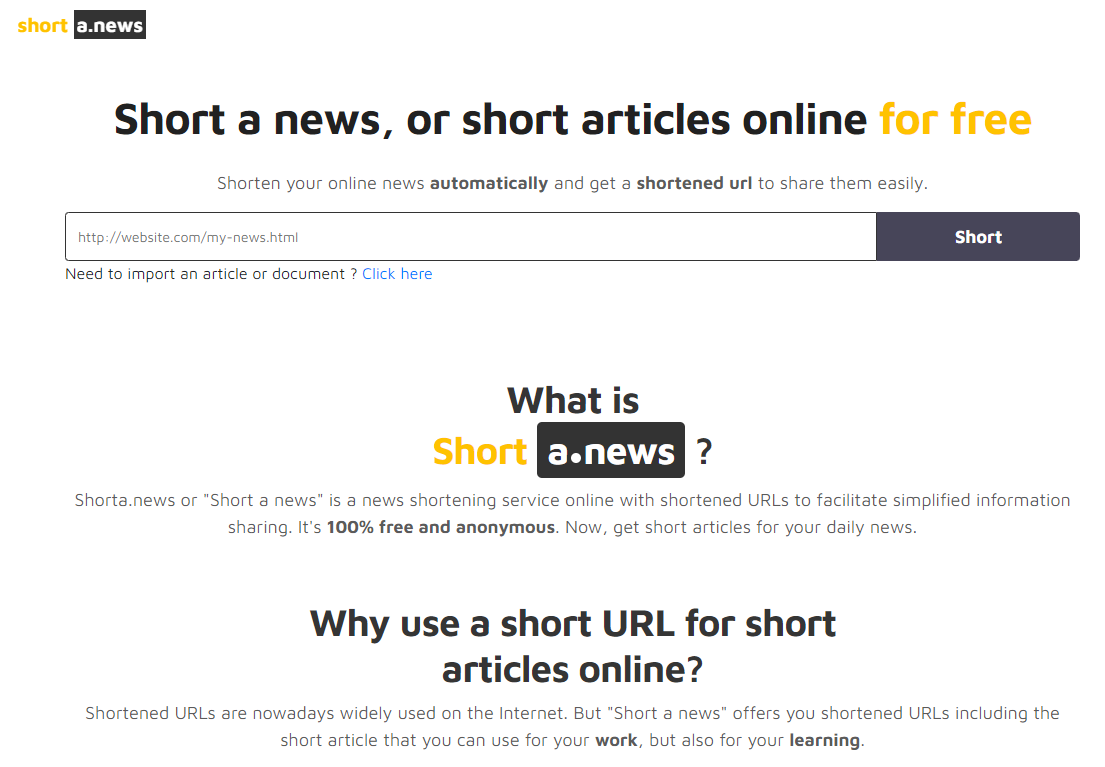Nomad Internet vs. CenturyLink: The Mobile Backpack vs. the Traditional Briefcase of Web Access
Choosing the best Internet Service Provider (ISP) for internet connectivity is like to selecting the right tool for the task. Consider your internet subscription to be a bag that you carry around every day. Do you desire a versatile backpack that can adapt to any excursion while providing flexibility and freedom? Or perhaps you prefer a dependable conventional briefcase more suited to specific tasks? In this contrast, Nomad Internet is the adaptable backpack, ready for any challenge, whereas CenturyLink is the classic briefcase, durable but limited by design.

Content
Nomad Internet: The All-Terrain Backpack
This principle of Nomad Internet suggests frequent changes in location and shift, as well as user flexibility and variety when it comes to receiving Internet services. It uses cellular networks to connect to the internet anytime there is a signal and from any location, making it ideal for nomadic clients, remote workers, and rural inhabitants. They stated that they offered a variety of data options and did not require long-term contracts; thus, Nomad Internet allowed consumers to relocate their connection as they saw fit.
CenturyLink: The Sturdy Briefcase
CenturyLink is one of the leading internet service providers, offering customers DSL and fiber optic internet services. It is sluggish but reliable, economical, and can reach both rural and urban locations; consequently, the user will have a proper connection if they keep to the traditional way. However, similar to a briefcase, it is more stiff and less adaptive to the dynamic needs of today’s internet users.
What Makes Nomad Internet Superior to CenturyLink
1. On-the-Go Flexibility: Set for Any Adventure
Nomad Internet provides a great deal of flexibility; users can access the internet from anyplace as long as they are within the coverage area of cellular networks. Just as you need a bag that can contain your possessions while also serving as a place to lay items on your back, it is also great for those who need to be connected to the internet but are mobile, such as vacationers, RV drivers, or those who live in the country. Some are site- or point-focused, primarily providing a service at a single location where installation is completed. As a result, they are ineffective for organizations with varying connectivity requirements.
2. Contract-Free Flexibility: Freedom to Adapt
Nomad Internet provides month-to-month subscriptions without long-term contracts, allowing users to change their plans as needed. This versatility is critical for those whose internet requirements may shift over time. CenturyLink frequently needs contracts, which can lock users to certain restrictions and make it impossible to move providers without penalty.
3. Swift Setup: Immediate Online Connectivity
Nomad Internet provides Internet Services that are not limited to annual contracts, unlike others in the market, allowing users to change their plans. This makes it suitable for folks who need more or less internet than others at times. It is the situation with CenturyLink, where contracts are made between the company and the customers, the service terms are set, and they must pay a fee to switch to another service provider rapidly.
4. Coverage Where It’s Remote: Explore Off the Grid
In terms of coverage, Nomad Internet’s usage of cellular networks allows it to extend into underserved and unserved areas, unlike other ISPs such as Century Link. This capability is useful for persons living in areas with restricted internet access, who require a consistent internet connection regardless of where they are. This means that CenturyLink’s network coverage in rural areas is very limited when compared to urban and suburban areas.
5. Unlimited Data Access: No Barriers on Usage
Nomad Internet is happy to offer users excellent pricing and unlimited data plans that are never throttled. This flexibility is desirable, particularly for users who rely on the internet for business, education, and entertainment. CenturyLink’s plans may feature data limits, which might limit heavy users’ online activities.
CenturyLink: The Stability of Time-Honored Solutions
1. Reliable Speeds: The Steady Path
CenturyLink offers reliable speeds, especially in locations with fiber-optic connectivity. This dependability makes it an excellent alternative for customers who require consistent internet access, such as streaming and online work. However, its DSL service may have lesser speeds than fiber, limiting performance in some places.
2. Established Network: The Trusted Name
CenturyLink is a well-known brand with a large infrastructure that provides users with a sense of security in covered areas. This reputation may provide reassurance to people who desire a well-known business for their internet service.
3. Smart Pricing: Stability and Value
Continuing with the pricing philosophy, CenturyLink offers relatively inexpensive prices to the market, particularly for the company’s fiber-optic internet connection, which may be a profitable opportunity in some places. However, contract expenses and potential penalties in the event of contract termination can be detrimental.
CenturyLink’s Classic Approach: Key Constraints
1. Fixed Location Connectivity: Stuck in One Spot
In contrast to wireless modems, the service must be placed in a specific location, limiting mobility if a user need internet at more than one location. One of the disadvantages is that it is a fixed method, which may be problematic for someone who leads an active/suspenseful lifestyle or travels frequently.
2. Binding Agreements: The Restrained Path
CenturyLink frequently demands long-term contracts, which commit users to particular terms and restrictions. These contracts may limit your ability to move providers or change plans without paying fines.
3. Service Gaps: Restricted Reach in Rural Areas
CenturyLink’s coverage is mostly focused on urban and suburban areas, leaving rural users with few options. This lack of service can be a big disadvantage for people living in distant areas.
Closing Remarks: Select the Adaptive Freedom of Nomad Internet
Some questions to ask oneself when choosing an ISP can be answered by reflecting on one’s life, job, and leisure interests. Thus, Nomad Internet serves as the universal knapsack of connectivity: quick, easy, and, unlike most firms, not bound to a contract.
While CenturyLink is a stable alternative for those in covered areas, its lack of flexibility and coverage makes it less tempting to consumers looking for a dynamic and adaptive internet experience. Nomad Internet is great for individuals seeking a more adaptable and unfettered internet option. Enjoy the ability to connect from anywhere and an internet service that fits your lifestyle and goals, like a backpack ready for any digital journey.

Shawn Davis is a wonderful person. He is very nice and always willing to help out! He loves his job because it lets him share interesting things with people who want to know about new developments in the world of technology.












